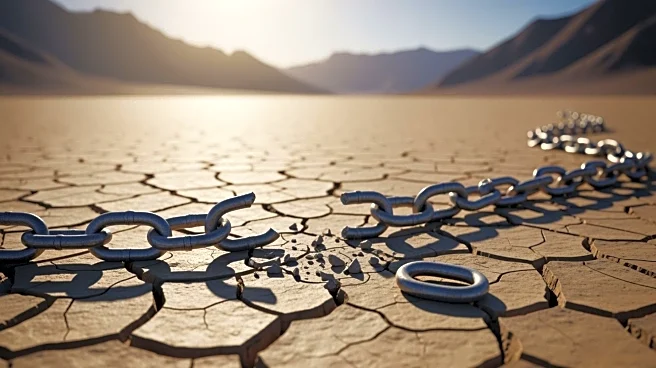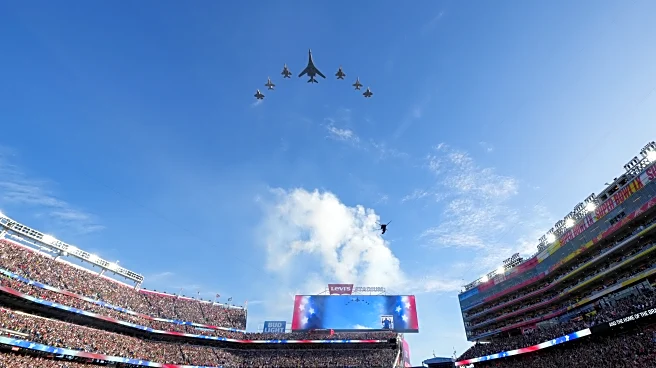What's Happening?
In Morocco, a series of protests led by the Gen Z demographic have erupted across more than a dozen cities, challenging the government on issues of corruption and inequality. The movement, known as Gen Z 212,
has organized these demonstrations through digital platforms like Discord, reflecting a growing discontent among the youth over government spending priorities. The protests have been fueled by contrasts between investments in infrastructure for the upcoming 2030 FIFA World Cup and the inadequate state of public services, particularly healthcare. Unemployment among young Moroccans is high, and many have expressed a desire to emigrate due to limited opportunities. The protests have seen participation from minors, and some have turned violent, leading to arrests and convictions.
Why It's Important?
The protests in Morocco underscore a broader global trend where young people are increasingly vocal about their dissatisfaction with traditional political structures and economic inequalities. This movement could have significant implications for Morocco's political landscape, potentially influencing government policies and priorities. The focus on corruption and inequality resonates with similar movements worldwide, highlighting a generational shift towards demanding accountability and transparency from governments. The protests also draw attention to the socio-economic challenges faced by many Moroccans, which could impact the country's stability and development if not addressed.
What's Next?
The Moroccan government has shown a mixed response, with security forces alternating between crackdowns and allowing protests to proceed. The government has expressed openness to dialogue and suggested improvements in healthcare, but concrete actions remain to be seen. The protests could continue to gain momentum if the government's response is perceived as inadequate. The situation may prompt further international attention and pressure on Morocco to address the underlying issues of inequality and corruption.
Beyond the Headlines
The protests highlight the tension between Morocco's aspirations for international prestige, as seen in its World Cup preparations, and the domestic realities of economic hardship and inadequate public services. This dichotomy raises questions about the sustainability of Morocco's development model and the potential for long-term social unrest if disparities are not addressed. The movement also reflects a broader challenge for governments worldwide to engage with a digitally savvy and politically aware youth population.











